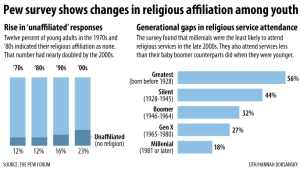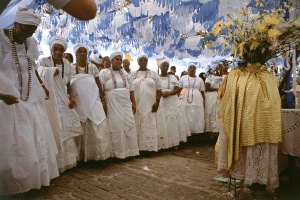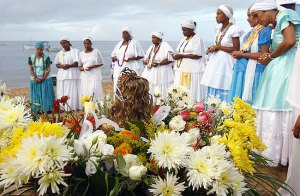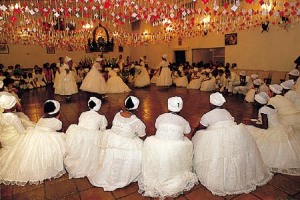In more recent years, religions across the world have been on the decline. According to the Washington Post, in the 1950s those who identified with no religion was at about 2 percent of the entire population. In 1970, this percentage grew to 7 percent. Now, the percentage has swelled to almost 20 percent of the population.
According to Pew, 74 percent of those who don’t identify with a religion grew up without a religious belief.
It’s hard to locate the source of the problem. With the younger generations it seems religion and faith have taken a back seat. More children are being raised faithless in the United States than every before. The decline in religion dates to the 1990s when trust in religious institution became questionable. Scandal is no stranger to religion, including sexual scandals of church leaders and the church’s opposition of same-sex marriage.
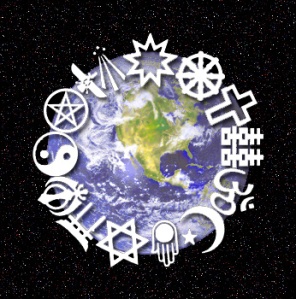 I’ve noticed the decline of religion in my life. My great-grandparents were straight off the boat Irish, strict Roman Catholics. Both my grandparents and my parents were raised Roman Catholic, but me? Well, I was raised Roman Catholic too, but not in the same sense they were. My upbringing was not strict. We did everything the normal Catholics did. My siblings and I have all been baptized, confessed, communed and confirmed. We used to always go to church on Sundays until there was some controversy with my mom’s favorite priest, and we stopped going after he left the parish.
I’ve noticed the decline of religion in my life. My great-grandparents were straight off the boat Irish, strict Roman Catholics. Both my grandparents and my parents were raised Roman Catholic, but me? Well, I was raised Roman Catholic too, but not in the same sense they were. My upbringing was not strict. We did everything the normal Catholics did. My siblings and I have all been baptized, confessed, communed and confirmed. We used to always go to church on Sundays until there was some controversy with my mom’s favorite priest, and we stopped going after he left the parish.
Over the years I’ve grown apart from the religion I was raised in. Learning about other religions and understanding what others believe in has made me more accepting of other ideas. Maybe Catholicism isn’t the only important religion out there? Maybe I think there’s more than one God? Maybe I don’t even believe in God?
I have always been one to question religion and I think I always will. There will never be a way to really known and that’s why we have faith. As I’ve grown up, I’ve lost the faith I had in the Catholic church. I like to think that I’ve developed a syncretic religion that is all my own.
Here is what I know…
- I love the Amish life of simplicity.
- I love the Taoist idea of the Tao. The feeling inside of you that cannot be described in words. The source and the driving force behind everything. When you have to make a decision and something instinctively tells you to make a certain decision, that’s the Tao working inside you. The Tao will always keep you on the path meant for you.
- I love that marriage is a central notion for Mormon life. They believe God ordered them to get marriage and have children. Mormons believe that the family continues on together to salvation after death and I hope that’s true.
- I love all of the ideas behind Sikhism. They believe that the way to lead a good life is to keep God in your mind, to live honestly, to work hard, to treat everyone as an equal and to be generous to the less fortunate. I think if we could all learn to live like the Sikhs the world would be a much happier place.
- I love the Wiccan quote “If you take the Christian Bible and put it out in the wind and the rain, soon the paper on which the words are printed will disintegrate and the words will be gone. Our bible is the wind and the rain.” Like me, the Wiccans believe in the very world they see right before their eyes.
- The unity and push for equality that surrounds the Unitarian Universalists is beautiful. I hope one day all religions can be this accepting.
- I like that Scientology seeks to base their beliefs in something concrete.
- I love the Buddhist idea of reincarnation. For me, reincarnation is the explanation for déjà vu. Why do I feel like I have been here before? Because you have been. Why do I know exactly what he is about to say? Because you’ve heard it before.
- I simply love the Rastafarian dreadlocks.
- I love the Jain idea of bad karma accumulating on the human soul and that the human has to spend their life “chipping away” that karma. It gives us a reason to live for the good.
- I love the Bahá’í belief that greater good will prevail when humanity works together in unity for the benefit of not themselves, but others.
- I love that Zoroastrians pray facing the sun because it symbolizes God’s divine light.
- I love that Spiritualists believe that every soul lives past physical death and that all souls are reunited.
- I love that Santeria was born because the African slaves felt so strongly about their religion they refused to completely convert, but instead blended religions.
- I love that Atheists believe in humanity rather than a higher being and that they believe the real reward is living a good life now while you’re here to live it.
- I love Islam’s Five Pillars of Faith and that they are required to help the less fortunate.
- I love that Hasidic Jews live together in tight-knit communities where they really care about each other.
- I love the Shinto notion that there are kamis there to guide us. Everyone can use a helping hand now and then.
- I love that Candomblé doesn’t believe in good or bad. Just that one person should live their life in order to fulfill their own destiny as best they can.
- I love the creativity of the Church of the Flying Spaghetti Monster.
- I love that Confucianism teaches that human nature is “teachable, improvable, and perfectible.”
- Interfaith marriage is beautiful.
And let’s face it… I have nothing nice to say about the Westboro Baptist Church.
When you take a chance to open yourself to others beliefs you might be surprised. You might end up believing in something you weren’t raised to believe in. You might learn to tolerate others in a new way. There is something beautiful in every religion if you take the time to find it.

